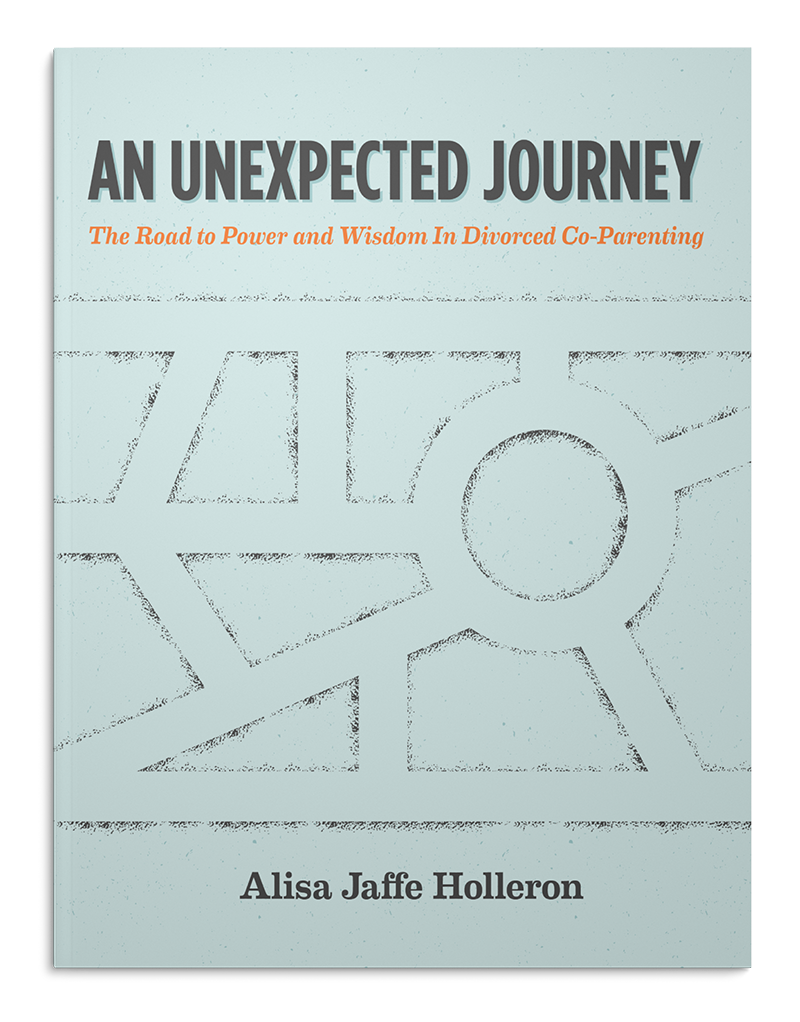It is not unusual for divorced co-parents to feel confused about how to answer children’s questions about divorce? Here are important guidelines.
1. Focus on emotion, not content.
Children of divorce often feel as though the ground under their feet is shaky. The world they’ve known has shifted and they are trying to figure out if they are secure. Children ask questions because they are trying to figure out if they are ok; if they are on solid ground. Co-parents will be helpful to their children if they keep this at the forefront of their minds.
It is imperative to understand that children’s questions about divorce usually come from confusion, anxiety and insecurity. They are asking the question so that you will give them an answer that makes them feel better. Even though it may seem counterintuitive, it is important to realize that giving them a literal answer to their questions is likely to confuse them and make them more anxious.
Here are some examples. A child hears adults talking about how about one of their parents had an affair, or they hear their parent on the phone talking about how angry they are at the other parent, or they see their parents argue at an exchange. These things cause distress because the two people who care for them, on whom they depend on, who they love the most in the world, are at odds with one another. That causes insecurity and fear. So they say: “Did you have an affair?” or “Why are you so mad at Daddy?”
It may sound like they want those answers, because, well, they are asking those questions. But they are asking because they don’t know how to ask for what they really need. Most children can’t say: “I am feeling really insecure and worried about myself in the midst of this divorce and need reassurance that I will be ok.”
They are trying to figure out if they are going to be ok, plain and simple. They don’t really want to know about your co-parents affair, or whether you love Mommy or Daddy or not. Giving the adult details will not calm their anxieties. In fact, it can make things worse. Details that involve adult matters that they are developmentally incapable of understanding will be create more confusion for them.
Instead of focusing on the content, focus on the emotion. Let them know you understand they are worried or scared. Assure them that everything will be ok. Hug them. Feel with them. That is the most reassuring thing you can do.
If they press on the question, especially if it’s an adult content question, tell them that it is an adult matter and that the important thing is that everything will be ok; that life feels scary for everyone sometimes, but that you will all get through it. Hug them some more. Feel with them some more. Connecting with them emotionally is what helps them feel safe.
2. Children are children, not little adults.
No matter how smart your child is, they are not mature enough to hear about adult matters. This is true for teenagers as well. Parents often mistake intelligence for maturity. They are two very different things. Remember that the brain does not fully develop until age 25. Children are not emotionally and psychologically adults even if they are geniuses. Expecting your child to understand adult matters is putting a burden on them that is likely to be stressful and potentially harmful. Children are not adults. They can’t be. They need to be children.
3. Remember what actually makes them feel safe.
The number one thing that makes children feel safe is CONNECTION. Feel into their experience. Imagine what it’s like to be them. Feel the truth of how distressing and confusing things can be for them. Children know when you are connected to them. Words are often not necessary. Give them hugs. (Have I mentioned that yet?) They will know that you are there for them, not because you tell them, but because they know when you’re really connected. Sure, you can say things too. Tell them you know it is hard. Tell them things will be better. But without real connection those words will be empty. (Learn more about what children need)
Connection can be difficult for parents because it hurts us deeply to feel our children’s hurt, anxiety or confusion. We hate for our children to feel bad, and we want to make it better quickly. Remember that by trying to fix it you are bypassing the connection, and that is disconnecting. Trying to answer children’s questions about divorce literally is bypassing the emotions. Train yourself to connect to their emotional states. Don’t rush to fix it.
4. Take a breath. You don’t have to answer right away!
Conversations move fast in our culture; one person talks and the other responds quickly. We don’t take time to be thoughtful and really consider the question, and even more importantly, why they are asking the question. When your child asks a question, take a breath, or better yet, twenty breaths. Don’t answer until you have clarity about why they asked the question. Once you know what motivated the question to begin with, you will have a much better idea of how to respond. It is fine to say “I need to think about this for a while before I answer.”
5. Don’t use their questions as opportunities to tell your side of the story.
You might think “Well I wasn’t going to tell them about the affair, but since they’re asking…” or “I think it’s time to tell them why I don’t like their other parent.”
Telling your side puts children in the middle. It is subtly asking them to adopt your perspective. Your co-parent has a different perspective, so you are essentially asking them to decide whose perspective is right, which only makes them more anxious. They can’t, and shouldn’t have to sort out whose perspective is “better.” Never put them in the position of having to figure out which parent is to blame.
6. Pointing out your co-parent’s bad behavior doesn’t teach children anything.
Parents often feel like making an example of their co-parent’s bad behavior is a way of teaching children how not to behave. No. Children don’t learn this way. Hearing about how bad their other parent is makes them feel anxious, because again, it puts them in the middle.
I am not suggesting that you condone bad behavior. I am not suggesting you sugar-coat things that you can’t sincerely sugar-coat. I am suggesting that you remember that your child is distressed, that children’s questions about divorce come from distress, and telling them how bad their other parent is is not going to make it better. What will make them feel better is connection. If you want to teach good values and good behavior, role model these things yourself.
7. Be a translator: Get to the heart of what the child really needs.
Learn to ask yourself what the child is REALLY asking. Detach from the literal question, and determine what the emotional question is. And, remember, that question is almost always “Am I OK?”
Difficult co-parent? Things CAN be better.
Seven Life-Changing Co-Parenting Skills
2. Let Go of What You Can’t Control
3. Be the Person You Want Your Child To BE
4. Know What Children Really Need




